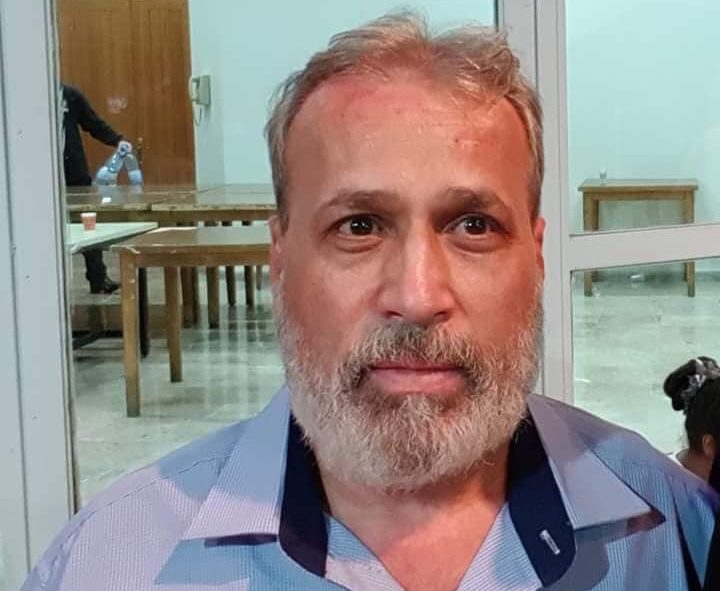Slain head of chemical weapons programs reportedly working with Iranians on precision missiles
LATEST
MONDAY FEATURE
Syria’s Future: No Country for Young Men, A Cannibalized Economy, Walls of Fear, Survival
An Assad regime outlet is blaming Israel for the assassination of Aziz Azbar, the head of the regime’s chemical weapons research program.
The al-Watan newspaper claimed that the Israeli intelligence service Mossad was behind the car bombing that killed Aziz Azbar (pictured) and his driver on Saturday night, near the Scientific Studies and Research Center in Masyaf in western Syria.
The regime made no official comment.
Israeli Defense Minister Avigdor Liberman played down any possibility of Israeli involvement:
Every day in the Middle East there are hundreds of explosions and settling of scores. Every time they try to place the blame on us. So we won’t take this too seriously.
A rebel faction, the Abu Amara Brigades, claimed responsibility for the assassination. However, analysts noted that the group — which has previously operated only in Aleppo Province — has falsely taken credit for past killings of regime officials and militia commanders
Azbar led the research program at the SSRC on delivery of chemical weapons. He reportedly was working with the Iranian military on missiles with more precision.
An Israeli outlet said the bomb was placed in the headrest of Azbar’s car seat. The same method was used to assassinate Hezbollah military leader Imad Mughniyeh, slain in 2008.
Israel is also believed to be responsible in past years for the killing of several Iranian nuclear scientists, and of a Hamas rocket scientist and drone engineer in the past 18 months.
Since the start of the Syrian uprising in March 2011, Israel has periodically carried out airstrikes against targets of the Assad regime and its allies. The attacks were initially against transfer of missiles and other weapons to Lebanon’s Hezbollah and the movement of Hezbollah and Iranian personnel into southwest Syria, near the Israeli-occupied Golan Heights. The strikes have expanded this year through much of Syria, seeking to disrupt the Iranian military presence.
On three occasions since last September, including last month, the Israelis have fired missiles on the SSRC in Masyaf. The US, Britain, and France hit the facility in April, a week after the Assad regime carried out two chemical attacks on Douma in East Ghouta near Damascus.
Kurdish SDC: We Demand Decentralization
The Kurdish Syrian Democratic Council has knocked back the Assad regime’s aspiration of full control of northern and eastern Syria, saying that any political resolution must lead to a decentralized Syria.
The regime had upheld talks with the SDC last month as leading to the way for its reassumption of authority in areas taken by the US-supported, Kurdish-led Syrian Democratic Forces.
But the SDC’s chair Ilham Ahmed, who led the talks with the regime, told Russia’s RT:
We believe that decentralized Syria is the right decision in order to save the country from the aftermath of the crisis and this tragedy. A centrally-controlled system was the source of this crisis.
Ahmed also played down any advance in last month’s discussion: “I cannot say we reached an agreement on these issues. Everyone stuck to general issues. It will be discussed later.”
She said a bilateral commission will consider Constitutional articles and the administrative system, as well as the rights of Kurds and other ethnicities and nationalities in Syria.
See also Syria Daily, July 28: Kurdish Delegation in Damascus for Talks with Assad Regime


never
Any news about Idlib offensive?, will it happend?
Probably in September. The SAA needs to move all its assets from the South West
Depends on the Russians. No sign so far that they will give a green light to it.
And the turks…..
Turks don’t have a say. They wont agree to it but there is not much they can do about it.
Depends on the Russians.
Maybe not. The Chinese have said they would support the Syrian government offensive in Idlib
Rumor and probably disinformation.